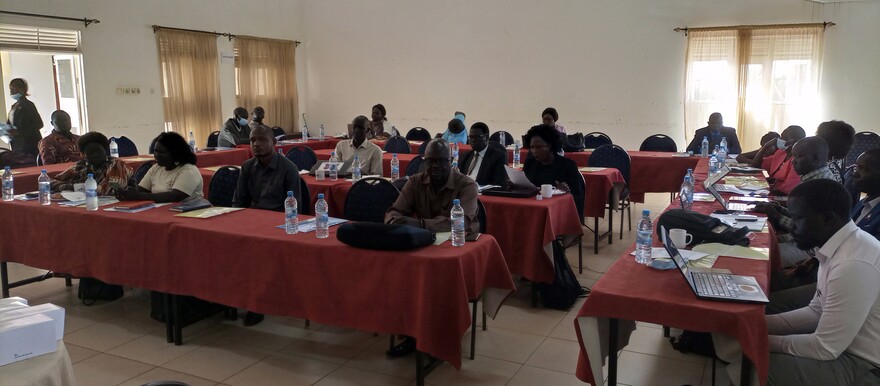A four-day HIV/AIDs national strategic plan development retreat kicked off in Torit in Eastern Equatoria State on Monday to review and find ways of combating the disease by 2030.
The retreat, with over 40 participants drawn from the South Sudan HIV/AIDS Commission, the health ministry, and health sector partners, hopes to develop a new strategy that will be aligned with the new Global Fund strategy.
Dr. Esterina Novello, the chairperson for South Sudan HIV/AIDS Commission, said the rate of new HIV/AIDS infections in the country is rising and more people are dying from the disease.
“More of our people are getting sick and dying of AIDs although the mortality rate for the HIV/AIDs related illnesses is coming down, still we have more new infections which is not good,” she said. “This consultative workshop aims to review the current strategy and develop a new strategy for 2024-2026 that should be in line with the new Global Fund strategy and new funding cycle 4.”
Dr. Novello appreciated UNDP for financing the retreat and other partners for helping technically in the fight against HIV/AIDS.
Meanwhile, Peter Lokale Nakimangole, the chairperson of the HIV/AIDS Commission in Eastern Equatoria State, called on the government and partners to renew their commitment to the fight against HIV/AIDS.
“HIV is silent and we do not see it, it is like air and it kills people simply because they do not know how it is transmitted and prevented,” he said.
“We need a lot of work to be done and we need to support the volunteers. Also, at the commission, we are vulnerable, we do not have funds.”
On his part, the Eastern Equatoria State health minister, Lodae Pasqual Loyakori, said the fight against the virus requires extra effort by the relevant institutions.
“We need to look at institutions to find the key policies that we can include in the national strategic plan. If you look at the data from Eastern Equatoria, we have seen in some places that community screening is yielding a lot of results,” the minister said. “In places that we have not applied such strategies like in Kapoeta East, we have seen the 24-49 age group has a high infection rate. So, how can we put information together, put ideas together to specifically target such groups?”




